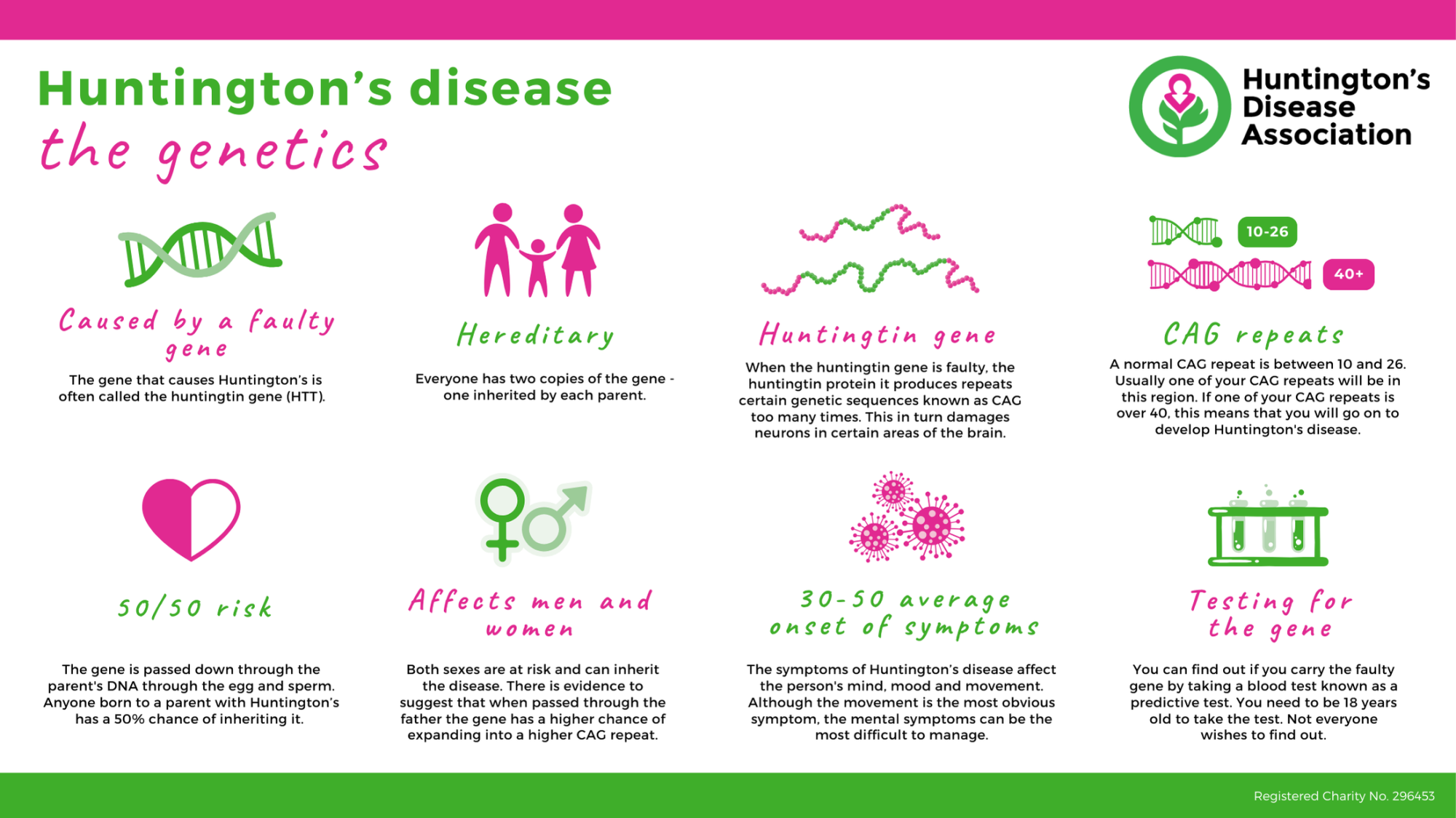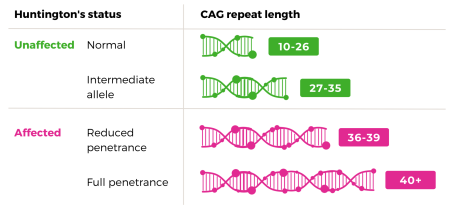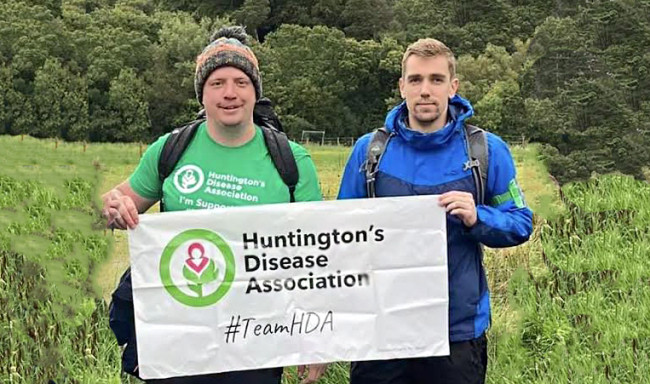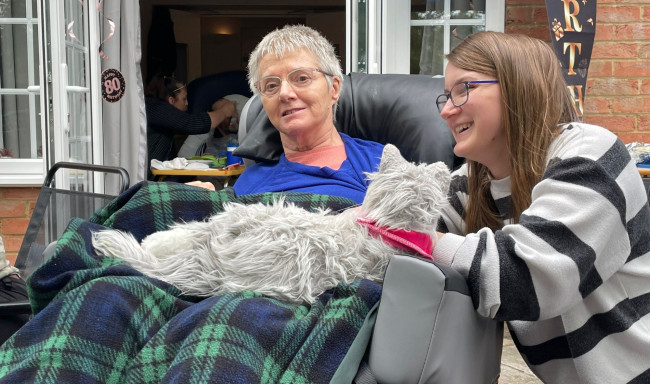This month we have been talking all about genetics.
Genetics covers a wide range of talking points such as:
- The genetics of Huntington's disease
- Predictive testing
- Genetic counsellors
- The grey area
More information about genetics can be found on the following pages:
Huntington's disease genetics
Huntington's disease is caused by a faulty gene that is passed down from a parent. The faulty gene produces a certain genetic sequence known as CAG. In the faulty gene, this CAG is repeated too many times, which in turn damages neurons in certain areas of the brain.
Every child born to a parent with the disease has a 50% chance of inheriting Huntington's. The gene that causes Huntington’s is often called the huntingtin gene (HTT).
We have put together this handy factsheet for you to download. You can share it on your social media or with friends, family, employers or healthcare professionals.

Understanding genetics
Dr Nayani Lahini, Consultant Clinical Geneticist, gave a presentation about all things genetics in this helpful video. The presentation was based on questions submitted by the Huntington's community ahead of the webinar.
Predictive testing
You can find out if you carry the faulty gene by taking a blood test known as a predictive test. You need to be 18 years old to take the test. Not everyone wishes to find out.
Testing is a very personal decision and one that should not be rushed into. Everybody's circumstances are different but we spoke to Niall and Gemma about why they decided to take the test after many years of not wanting to find out.
Genetic counsellors
A genetic counsellor is someone that you will meet with if you are thinking about taking the predictive test. You will attend a few counselling sessions so that they can find out why you want to be tested and if they think you are ready to receive the result. You can go through the counselling sessions and decide for yourself that you are not ready.
If you wish to find out more about genetic testing or different options when it comes to starting a family, you can find more information in our genetics guide.
All of our specialist advisers come from previous roles in care. One of our advisers, Chris, previously used to work as a genetic counsellor so he brings a wealth of experience on this topic and he is able to educate the community and wider team on. You can read more about his time as a genetic counsellor below.
The 'grey area'
A normal CAG repeat is between 10 and 26. Usually one of your CAG repeats will be in this region. If one of your CAG repeats is over 40, this means that you will go on to develop Huntington's disease. In rare occasions, some test results are not as simple as positive or negative.
Intermediate allele means the person will not develop Huntington's but there is a very small risk that this gene can expand when passed on. Reduced penetrance means that the person may go on to develop Huntington's disease but if they do it is likely to be at a later age than those with a full penetrance result.
You can see the results based on the CAG repeat length in the diagram below. The intermediate allele and the reduced penetrance results are what are often known as the grey area.

We recruited for a study that Cardiff University did to look at how people in the grey area were impacted by their results. You can read this below. We also spoke to a member of the community who's story of the gene expanding was rarer than rare.









